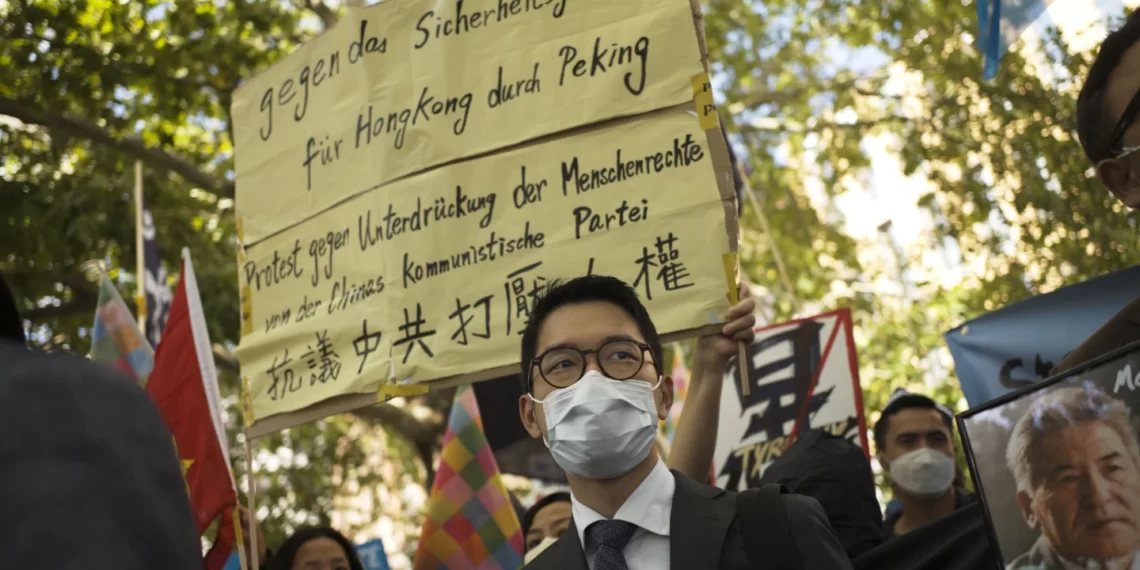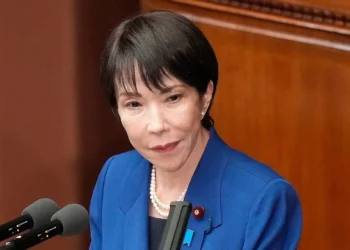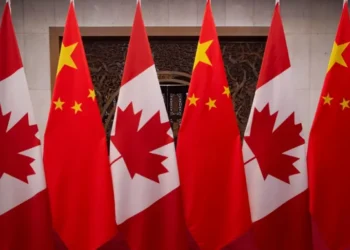Chief Executive of Hong Kong, John Lee, has declared that eight overseas-based activists who are wanted for alleged national security offenses would be pursued for life.
At his weekly press briefing on Tuesday, July 4, 2023, Chief Executive John Lee expressed his support for the police’s efforts in arresting the activists who have been accused of breaching the National Security Law. The law outlaws subversion, secession, collusion with foreign forces and terrorism.
The eight activists are former pro-democracy lawmakers Nathan Law, Ted Hui and Dennis Kwok, lawyer Kevin Yam, unionist Mung Siu-tat and activists Finn Lau, Anna Kwok and Elmer Yuen. They were accused of breaching the Beijing-imposed national security law by committing offenses such as collusion and inciting secession. They currently reside in the U.S., Britain, Canada, and Australia.
On Monday, July 3, 2023, police offered 1 million Hong Kong dollars ($127,600) for information leading to each arrest of the eight activists. This has not happened before since the tough law was enacted in June 2020.
Lee in his speech averred that anyone, including their friends and relatives, who offered information leading to their arrests would be eligible for the bounties offered by the police.
“The only way to end their destiny of being an abscondee who will be pursued for life is to surrender,” he said.
Meanwhile, Steven Li, the Chief Superintendent of the police’s National Security Department, has admitted that the police will not be able to arrest the activists if they remain overseas but urged them to return to Hong Kong and surrender for a reduction in their sentences.
Nathan Law, who is accused of foreign collusion and inciting secession, noted in a Facebook post that, the latest development signaled he was again being targeted by China’s ruling Communist Party and that he felt the “invisible pressure.” However, he refused to surrender.
“All I did was reasonable, justifiable and peaceful advocacy work,” the UK based activist said.
Unionist Mung also pledged in a statement that he would not cease advocacy work for Hong Kong labour rights abroad. “If I were ever found guilty, my only ‘crime’ would be speaking the truth for my fellow Hong Kongers,” he said.
Lee Dismisses Criticisms Over Extraterritorial Application Of The Security Law
The U.S. and British governments took issue with the extraterritorial application of the security law. The U.S., in particular, said such an application of the security law was a dangerous precedent that threatened human rights.
“We call on the Hong Kong government to immediately withdraw this bounty, respect other countries’ sovereignty, and stop the international assertion of the National Security Law imposed by Beijing,” Matthew Miller, a spokesperson for the U.S. State Department, said on Monday.
Australian Foreign Minister Penny Wong also tweeted that her country was “deeply concerned” by reports of Hong Kong authorities issuing arrest warrants for democracy advocates.
However, Chief Executive Lee insisted that extraterritorial power exists in the national security laws of many other countries. He said how overseas officials and politicians commented on the government’s moves will not change his administration’s strong belief in safeguarding national security.
“I’m not afraid of any political pressure that is put on us because we do what we believe is right,” he said.
The Chinese Foreign Ministry’s office in Hong Kong also expressed objection to the criticism from the U.S. and Britain, warning “foreign interference forces” to stop shielding “criminals” immediately.
Hong Kong, a former British colony that returned to Chinese rule in 1997, has come under increasingly tight scrutiny by Beijing following months of social arrest in 2019. Authorities have cracked down on dissent with over 260 people, including many pro-democracy figures, arrested under the harsh security law.
Hong Kong’s political system has also undergone a major overhaul to ensure that only “patriots” loyal to Beijing can hold office.























